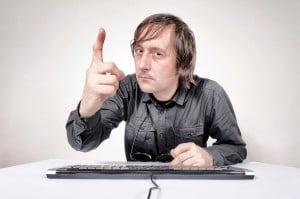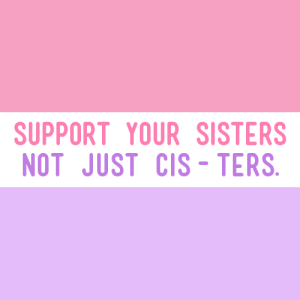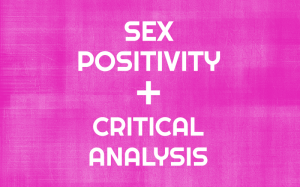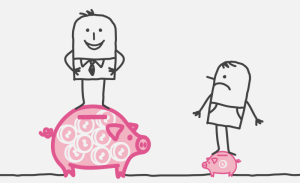
Souce: iStock
Months after she and I stopped speaking, her insecurities remained on a loop in my head: “Why does everyone always leave me? Everyone abandons me. It makes me want to die.”
The horrible trauma I knew she had experienced constantly pulled me back to worrying about her wellbeing, well after I’d blocked her from all of my online accounts. Days would go by where my inner life consisted of fighting the urge to message her and make sure she knew I was still around for her.
After finding myriad ways to show me I was worthless to her within and without the relationship, her pain was mine and became something I needed to treat.
It was a combination of my love for her and a savior’s complex that kept me with an abusive partner.
As a lover, I felt if I could make her feel better about herself – love herself – then she would treat me better. As selfish as this thought process was, at that time, I was trying to nurture both myself and the relationship.
As a savior, I felt that if I walked away, I would be leaving her in the terrible mental space she was. I felt it would be selfish of me to leave before she healed – even when, of course, that was never the case.
Personal values transform within relationships with abusive partners. Because two lives have collapsed into one due to the power dynamics, the boundaries of who I was in regards to my self-chosen values became blurred.
I started living out of her ideas of selfishness instead of my own. I started running my life based what she felt was important, instead of what I felt was important. I didn’t realize then that this, too, is an act of self-neglect.
But no one talks about the time you spend reconnecting with your own values after the end of a relationship with an abusive partner. How wild it feels that the world expects you to keep loving yourself when you don’t even remember who you are.
It took a long time for me to simply realize she was abusive, and then even longer to heal from it. I’ve also never stopped loving her.
I know it can get hard to love yourself when you still love someone who made you hate yourself.
You deserve to understand that there is nothing wrong with the process you took, or are still taking. So here are six things to remember when maneuvering through the process of loving the person who abused you.
1. Trauma Doesn’t Remove Your Understanding, But Understanding Won’t Remove Your Trauma
When someone is speaking to another about their abuse, the person who inflicted the abuse is usually stripped of their complexity by the listener.
This is harmful because it encourages questions such as “How could you love someone who would treat you like that?” or “What were you thinking?” – as if that was the only aspect of the person’s character.
She was brave and took chances and made mistakes like everyone else.
But understanding her didn’t remove the scars caused by her actions.
Being used for company to fend away her loneliness was still painful. Being told how many times she wished I was someone else, and how worthless she thought I was, was still agonizing. Especially since she knew they were the same words my mother said to me when I was younger.
The insecurities I harbored long after the relationship was over were so intense, I wasn’t able to write an article for over a year because she told me “you were never able to make a point anyways” – and I believed her.
As much understanding as you can give someone, at some point, you have to give it to yourself.
To the many moments when you wanted to break up with them and why. To the pain and the reasons behind them.
If you can understand the reason behind their actions, which justified them to you for so long, you can also justify your action of eradicating the person from your life. Because as much as you wanted to give yourself as support, you weren’t the cause of the hurt in the first place.
2. You Didn’t Cause This, So You Can’t ‘Fix’ It, Either
She had said to me, in terms of her abusive behavior, “If it wasn’t you, it would have been someone else.”
Even in the throes of her darkness, she held the innate understanding that she was making a choice about who she was being – a choice completely separate from the person I was, the actions I made, or how I loved.
It may be hard to believe, but the person you were in a relationship with was dealing with their pain before you came into their life.
And prior to your presence, the person had already decided who they were going to be with that pain and out of which values they were going to live.
You are not responsible for another’s bettering because you cannot directly affect how another person acts with themselves or with others (unless you act abusively).
While it’s possible to inspire someone to act a certain way, they must already have the inner belief that this new way is better than how they were acting prior to being inspired. If this belief isn’t there, then you can act as pleasantly as possible, and if they don’t consider that way to be better, they will not change.
Your partner not changing is not an indication that there is anything wrong with the way you are, no matter how long they’ve been making it seem like there is.
Everyone has the capacity for both goodness and evil-doing inside of them, so always seeing the best in someone (even when they’re acting a fool) is no more foolhardy than always seeing the worst in someone.
There’s no shame in seeing someone at their full potential.
It’s only dangerous when we commit the act of neglecting our own needs in an effort to get them there, and then they never make the choice to actually get there. It’s painful when the realization hits you, but when it does, it’s okay to not have dismissed it.
You felt that way for a reason. Explore it.
At the end of the day, it’s always that person’s choice who they are going to be, which means that even if you left them on their journey to self-realization, you didn’t abandon them.
3. You Didn’t Abandon Anyone
Your partner(s) is/are responsible for their own health and happiness, always. At best, you can provide resources for self-care, patience, and understanding. But if giving these things are coming at the cost of your well-being, it isn’t growth.
If the relationship is not the uplifting of two (or more) partners, then there’s a deficit. A partnership must be for the uplifting of all people within – including ourselves.
Staying with someone to support them cannot come at the cost of self-abandonment – because in the end, someone is still getting neglected.
The love you have for yourself is just as valuable as that gotten from another, so if you must remove yourself from a partner and cultivate the love within yourself, for yourself, this is not a downgrade. Being with an abusive person can make you feel as if your love isn’t valuable, because they make you feel as if you aren’t valuable, but it is and you are.
You have an obligation to yourself first, before you have an obligation to another, because you are the one you are guaranteed to be with for the rest of your life. You are your most important commitment. You are your greatest love.
So the things you do in order to cultivate the relationship with yourself, such as breaking up with a partner, is nothing against them. The things you do in your committed relationship with yourself is nothing that is against them.
4. You Left Because You Love You, Not Because You Don’t Love Them
I cut off all contact and did not speak with her for some time.
I felt terrible, but the questions this left me with was: If I was willing to give up my peace of mind for her well-being, what will I be willing to give up for my own peace of mind and my own well-being?
What if I chose to love myself like I loved her?
Your relationship with yourself cannot be jeopardized while in a relationship with someone else. You must always have the space to give yourself the same things that you also gave to your partner.
This includes acts of understanding, acts of support, acts of self-devotion, and acts of self-love.
Self-care is a crucial act of activism, but we must remember the toll on our psyche caused by the battle of daily life. Self-care must be a prominent factor in all things – from the way we treat ourselves, to the way we are treated by others.
We need to be fully aware of not only our needs, but how to meet them. And we must make sure we are doing this at all times.
So, in working to understand our process and take care of ourselves, there’s no reason to feel ashamed.
5. There’s Nothing to Be Ashamed Of
There’s nothing to be ashamed of for lending understanding to your abuser.
There’s nothing to be ashamed of for trying to help them heal.
There’s nothing to be ashamed of for leaving.
There’s nothing to be ashamed of for feeling like you abandoned someone.
There’s nothing to be ashamed of for simultaneously loving you and still loving them.
Because after understanding that you went through an experience of abuse, the worst part is the shame. The feeling of weakness you feel for loving someone who abused you.
Because of that shame, you begin to associate love with weakness, and then it becomes weakness to love yourself. But love is not a weakness – it’s its direct opposite.
The love you shared was never the problem. It was the abuse.
The same way we cannot convert everyone to intersectional feminism or womanism, we cannot save and heal everyone. Intersectional feminism and womanism, though, are never the problem. Oppressive behaviors are. And oppressive behaviors are never caused by the victim.
Likewise, it’s important for you to understand that you don’t cause abuse.
6. It’s Not Your Fault
Recently, I’ve noticed that I had been spending the bulk of my free time by myself.
I had been doing it for about a year now, but it just dawned on me that this was a choice I was making, and not caused by my introversion.
I initially noticed this during Christmas, alone in my house, watching The Addams Family Values. As I was sitting down to eat and watch my favorite movie, I caught myself having the fleeting thought, “No one can hurt me.”
Two months after Christmas, during my meditation session, it came up to me suddenly that I believed I caused abuse. I believed my very existence summoned it.
This was a very old idea implanted in me by my mother who used to tell me she wished I was never born, and how I ruined her life. Because she constantly said these things to me, I thought I wasn’t supposed to exist, and every good feeling I ever had was a stolen thing.
I felt like I deserved every bit of my mother’s abuse and neglect because just being alive was more than I deserved. These feelings were then reinforced by the relationship with the abusive partner that I was in, where my former partner told me, as well as made me feel, I wasn’t worth a damn.
Because I understand that I cannot control how someone reacts, I now know I did nothing to deserve the abuse from my mother or partner.
This is the most important milestone we can reach after an abusive partner.
The only way to love yourself is through understanding and accepting yourself. However, that can only happen when we remove the idea that we can cause someone to treat us a certain way.
This is because when we stop feeling this way, we stop acting and reacting in the ways we feel will get them to stop. We stop living life off on the defensive, and living as our authentic selves.
Once we see who we are apart from the psychological and physical reactions we’ve made to keep ourselves safe, we can find our way to ourselves. We can remember our own values, and live out of those. We can start in our journey towards self-devotion.
The story can end in pain – or it can end in healing.
***
As people, as activists, as partners, those who came before us did a lot to push back on the notion that they were deserving of less than humane treatment. There was an innate understanding of their worth, and this led to the revolutionary work of reclaiming their dignity, rights, and autonomy.
But to understand how equity can be disseminated in the greater public, we must first be able to emulate this work in our private lives in our immediate relationship with others, and more importantly, with ourselves.
[do_widget id=’text-101′]
Stephanie Ambroise is a Haitian-American artist/activist, who uses her words for the empowerment of others. Her first book of poetry, Sophrosyne, which deals with matriarchy, mental health, and absence, is on sale on Etsy. You can sample some poems from the book for free here. You can follow her on Twitter @OhCeanHeyCean, and Tumblr.
Search our 3000+ articles!
Read our articles about:
Our online racial justice training
Used by hundreds of universities, non-profits, and businesses.
Click to learn more



















